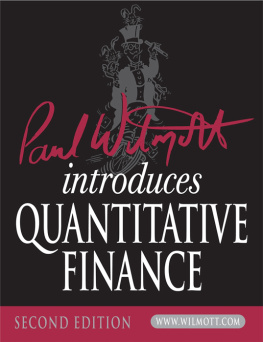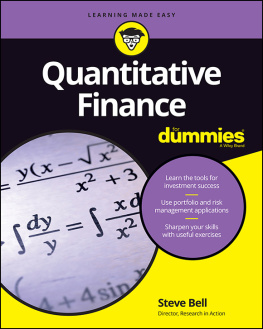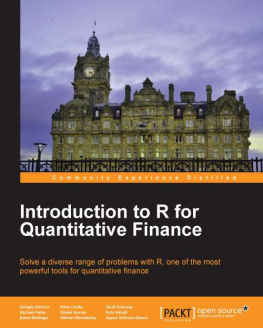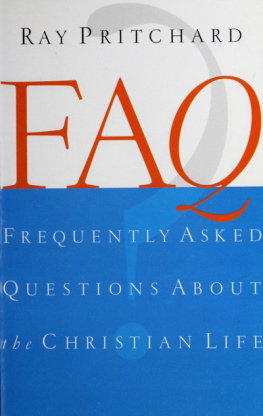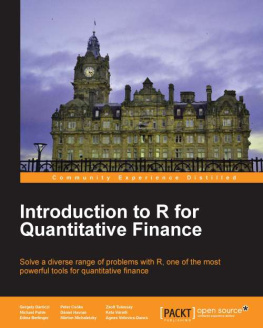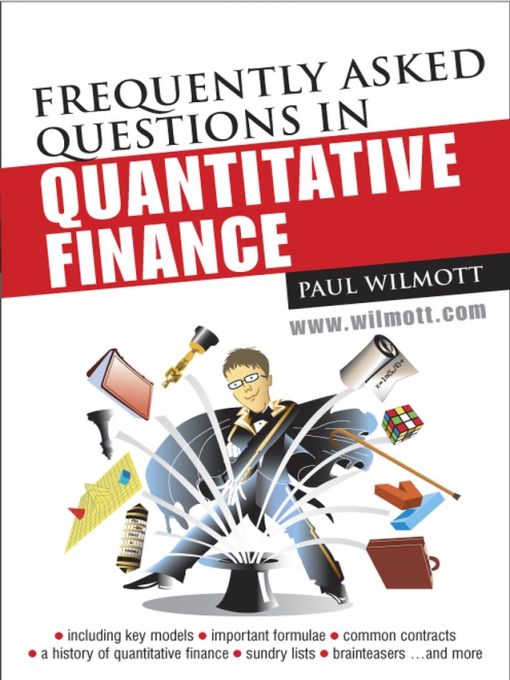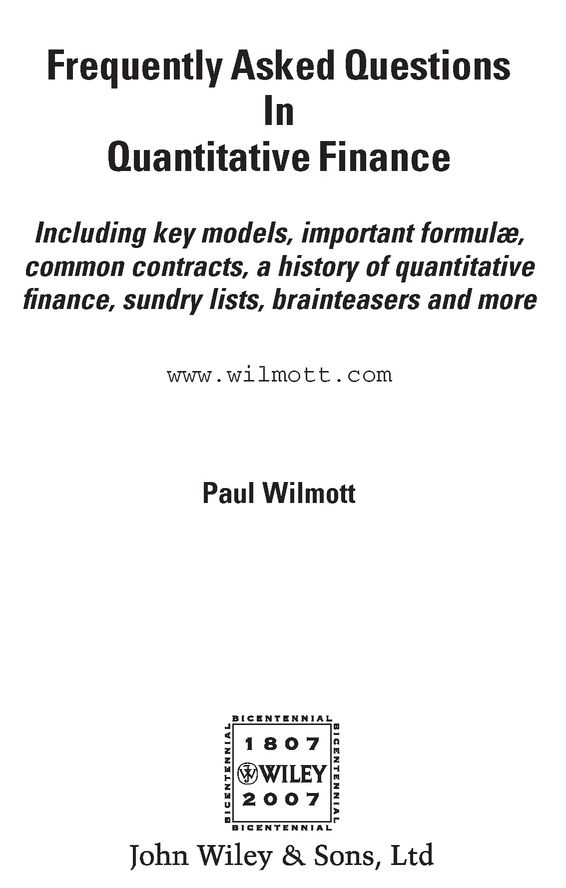Table of Contents
To my parents
Frequently Asked Questions
| 1. | What are the different types of Mathematics found in Quantitative Finance? | 20 |
| 2. | What is arbitrage? | 25 |
| 3. | What is put-call parity? | 28 |
| 4. | What is the central limit theorem and what are its implications for finance? | 31 |
| 5. | How is risk defined in mathematical terms? | 36 |
| 6. | What is value at risk and how is it used? | 40 |
| 7. | What is Crash Metrics ? | 44 |
| 8. | What is a coherent risk measure and what are its properties? | 48 |
| 9. | What is Modern Portfolio Theory? | 51 |
| 10. | What is the Capital Asset Pricing Model? | 54 |
| 11. | What is Arbitrage Pricing Theory? | 58 |
| 12. | What is Maximum Likelihood Estimation? | 61 |
| 13. | What is cointegration? | 67 |
| 14. | What is the Kelly criterion? | 70 |
| 15. | Why Hedge? | 73 |
| 16. | What is marketing to market and how does it affect risk management in derivatives trading? | 79 |
| 17. | What is the Efficient Markets Hypothesis? | 83 |
| 18. | What are the most useful performance measures? | 87 |
| 19. | What is a utility function and how is it used? | 90 |
| 20. | What is Brownian Motion and what are its uses in finance? | 94 |
| 21. | What is Jensens Inequality and what is its role in finance? | 97 |
| 22. | What is Its lemma? | 100 |
| 23. | Why does risk-neutral valuation work? | 103 |
| 24. | What is Girsanovs theorem and why is it important in finance? | 107 |
| 25. | What are the greeks? | 110 |
| 26. | Why do quants like closed-form solutions? | 116 |
| 27. | What are the forward and backward equations? | 119 |
| 28. | Which numerical method should I use and when? | 123 |
| 29. | What is Monte Carlo Simulation? | 132 |
| 30. | What is the finite-difference method? | 136 |
| 31. | What is a jump-diffusion model and how does it affect option values? | 142 |
| 32. | What is meant by complete and incomplete markets? | 146 |
| 33. | What is volatility? | 151 |
| 34. | What is the volatility smile? | 157 |
| 35. | What is GARCH? | 164 |
| 36. | How do I dynamically hedge? | 170 |
| 37. | What is dispersion trading? | 176 |
| 38. | What is bootstrapping using discount factors? | 179 |
| 39. | What is the LIBOR Market Model and its principle applications in finance? | 183 |
| 40. | What is meant by the value of a contract? | 188 |
| 41. | What is calibration? | 191 |
| 42. | What is the market price of risk? | 194 |
| 43. | What is the difference between the equilibrium approach and the no-arbitrage approach to modelling? | 198 |
| 44. | How good is the assumption of normal distributions for financial returns? | 201 |
| 45. | How robust is the Black-Scholes model? | 206 |
| 46. | Why is the lognormal distribution important? | 209 |
| 47. | What are copulas and how are they used in quantitative finance? | 212 |
| 48. | What is the asymptotic analysis and how is it used in financial modelling? | 216 |
| 49. | What is a free-boundary problem and what is the optimal-stopping time for an American option? | 220 |
| 50. | What are low discrepancy numbers? | 225 |
Preface
This book grew out of a suggestion by wilmott.com Member bayes for a Forum (as in internet discussion group) dedicated to gathering together answers to the most common quanty questions. We responded positively, as is our wont, and the Wilmott Quantitative Finance FAQs Project was born. This Forum may be found at www.wilmott.com/faq. (There anyone may read the FAQ answers, but to post a message you must be a member. Fortunately, this is entirely free!) The FAQs project is one of the many collaborations between Members of wilmott.com.
As well as being an ongoing online project, the FAQs have inspired the book you are holding. It includes FAQs and their answers and also sections on common models and formul, many different ways to derive the Black-Scholes model, the history of quantitative finance, a selection of brainteasers and a couple of sections for those who like lists (there are lists of the most popular quant books and search items on wilmott.com). Right at the end is an excerpt from Paul and Dominics Guide to Getting a Quant Job, this will be of interest to those of you seeking their first quant role.
FAQs in QF is not a shortcut to an in-depth knowledge of quantitative finance. There is no such shortcut. However, it will give you tips and tricks of the trade, and insight, to help you to do your job or to get you through initial job interviews. It will serve as an aide memoire to fundamental concepts (including why theory and practice diverge) and some of the basic Black-Scholes formul and greeks. The subject is forever evolving, and although the foundations are fairly robust and static there are always going to be new products and models. So, if there are questions you would like to see answered in future editions please drop me an email at paul@wilmott.com.
I would like to thank all Members of the forum for their participation and in particular the following, more prolific, Members for their contributions to the online FAQs and Brainteasers: Aaron, adas, Alan, bayes, Cuchulainn, exotiq, HA, kr, mj, mrbadguy, N, Omar, reza, Waagh-Bakri and zerdna. Thanks also to DCFC for his advice concerning the book.
I am grateful to Caitlin Cornish, Emily Pears, Graham Russel, Jenny McCall, Sarah Stevens, Steve Smith, Tom Clark and Viv Wickham at John Wiley & Sons Ltd for their continued support, and to Dave Thompson for his entertaining cartoons.
I am also especially indebted to James Fahy for making the Forum happen and run smoothly.
Mahalo and aloha to my ever-encouraging wife, Andrea.
About the author
Paul Wilmott is one of the most well-known names in derivatives and risk management. His academic and practitioner credentials are impeccable, having written over 100 research papers on mathematics and finance, and having been a partner in a highly profitable volatility arbitrage hedge fund. Dr Wilmott is a consultant, publisher, author and trainer, the proprietor of


